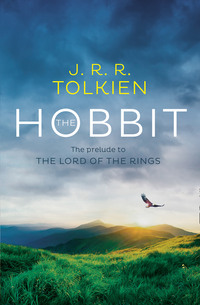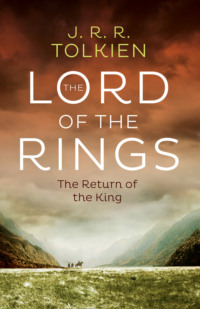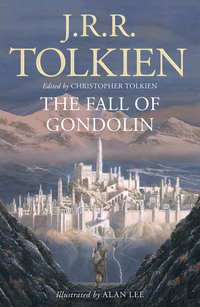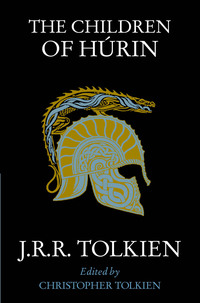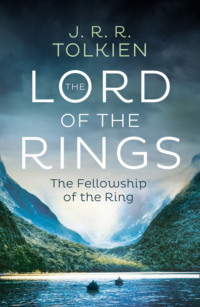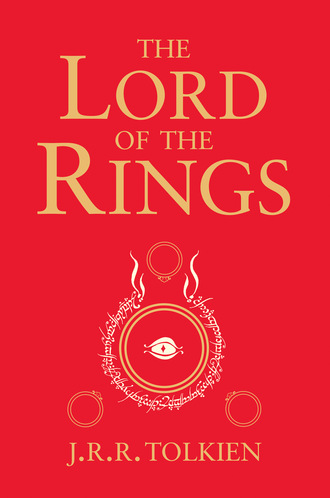
Полная версия
‘Can’t anything be done, Mr. Butterbur?’ asked Frodo. ‘Can’t we get a couple of ponies in the village, or even one just for the baggage? I don’t suppose we could hire them, but we might be able to buy them,’ he added, doubtfully, wondering if he could afford it.
‘I doubt it,’ said the landlord unhappily. ‘The two or three riding-ponies that there were in Bree were stabled in my yard, and they’re gone. As for other animals, horses or ponies for draught or what not, there are very few of them in Bree, and they won’t be for sale. But I’ll do what I can. I’ll rout out Bob and send him round as soon as may be.’
‘Yes,’ said Strider reluctantly, ‘you had better do that. I am afraid we shall have to try to get one pony at least. But so ends all hope of starting early, and slipping away quietly! We might as well have blown a horn to announce our departure. That was part of their plan, no doubt.’
‘There is one crumb of comfort,’ said Merry, ‘and more than a crumb, I hope: we can have breakfast while we wait – and sit down to it. Let’s get hold of Nob!’
In the end there was more than three hours’ delay. Bob came back with the report that no horse or pony was to be got for love or money in the neighbourhood – except one: Bill Ferny had one that he might possibly sell. ‘A poor old half-starved creature it is,’ said Bob; ‘but he won’t part with it for less than thrice its worth, seeing how you’re placed, not if I knows Bill Ferny.’
‘Bill Ferny?’ said Frodo. ‘Isn’t there some trick? Wouldn’t the beast bolt back to him with all our stuff, or help in tracking us, or something?’
‘I wonder,’ said Strider. ‘But I cannot imagine any animal running home to him, once it got away. I fancy this is only an afterthought of kind Master Ferny’s: just a way of increasing his profits from the affair. The chief danger is that the poor beast is probably at death’s door. But there does not seem any choice. What does he want for it?’
Bill Ferny’s price was twelve silver pennies; and that was indeed at least three times the pony’s value in those parts. It proved to be a bony, underfed, and dispirited animal; but it did not look like dying just yet. Mr. Butterbur paid for it himself, and offered Merry another eighteen pence as some compensation for the lost animals. He was an honest man, and well-off as things were reckoned in Bree; but thirty silver pennies was a sore blow to him, and being cheated by Bill Ferny made it harder to bear.
As a matter of fact he came out on the right side in the end. It turned out later that only one horse had been actually stolen. The others had been driven off, or had bolted in terror, and were found wandering in different corners of the Bree-land. Merry’s ponies had escaped altogether, and eventually (having a good deal of sense) they made their way to the Downs in search of Fatty Lumpkin. So they came under the care of Tom Bombadil for a while, and were well-off. But when news of the events at Bree came to Tom’s ears, he sent them to Mr. Butterbur, who thus got five good beasts at a very fair price. They had to work harder in Bree, but Bob treated them well; so on the whole they were lucky: they missed a dark and dangerous journey. But they never came to Rivendell.
However, in the meanwhile for all Mr. Butterbur knew his money was gone for good, or for bad. And he had other troubles. For there was a great commotion as soon as the remaining guests were astir and heard news of the raid on the inn. The southern travellers had lost several horses and blamed the innkeeper loudly, until it became known that one of their own number had also disappeared in the night, none other than Bill Ferny’s squint-eyed companion. Suspicion fell on him at once.
‘If you pick up with a horse-thief, and bring him to my house,’ said Butterbur angrily, ‘you ought to pay for all the damage yourselves and not come shouting at me. Go and ask Ferny where your handsome friend is!’ But it appeared that he was nobody’s friend, and nobody could recollect when he had joined their party.
After their breakfast the hobbits had to re-pack, and get together further supplies for the longer journey they were now expecting. It was close on ten o’clock before they at last got off. By that time the whole of Bree was buzzing with excitement. Frodo’s vanishing trick; the appearance of the black horsemen; the robbing of the stables; and not least the news that Strider the Ranger had joined the mysterious hobbits, made such a tale as would last for many uneventful years. Most of the inhabitants of Bree and Staddle, and many even from Combe and Archet, were crowded in the road to see the travellers start. The other guests in the inn were at the doors or hanging out of the windows.
Strider had changed his mind, and had decided to leave Bree by the main road. Any attempt to set off across country at once would only make matters worse: half the inhabitants would follow them, to see what they were up to, and to prevent them from trespassing.
They said farewell to Nob and Bob, and took leave of Mr. Butterbur with many thanks. ‘I hope we shall meet again some day, when things are merry once more,’ said Frodo. ‘I should like nothing better than to stay in your house in peace for a while.’
They tramped off, anxious and downhearted, under the eyes of the crowd. Not all the faces were friendly, nor all the words that were shouted. But Strider seemed to be held in awe by most of the Bree-landers, and those that he stared at shut their mouths and drew away. He walked in front with Frodo; next came Merry and Pippin; and last came Sam leading the pony, which was laden with as much of their baggage as they had the heart to give it; but already it looked less dejected, as if it approved of the change in its fortunes. Sam was chewing an apple thoughtfully. He had a pocket full of them: a parting present from Nob and Bob. ‘Apples for walking, and a pipe for sitting,’ he said. ‘But I reckon I’ll miss them both before long.’
The hobbits took no notice of the inquisitive heads that peeped out of doors, or popped over walls and fences, as they passed. But as they drew near to the further gate, Frodo saw a dark ill-kept house behind a thick hedge: the last house in the village. In one of the windows he caught a glimpse of a sallow face with sly, slanting eyes; but it vanished at once.
‘So that’s where that southerner is hiding!’ he thought. ‘He looks more than half like a goblin.’
Over the hedge another man was staring boldly. He had heavy black brows, and dark scornful eyes; his large mouth curled in a sneer. He was smoking a short black pipe. As they approached he took it out of his mouth and spat.
‘Morning, Longshanks!’ he said. ‘Off early? Found some friends at last?’ Strider nodded, but did not answer.
‘Morning, my little friends!’ he said to the others. ‘I suppose you know who you’ve taken up with? That’s Stick-at-naught Strider, that is! Though I’ve heard other names not so pretty. Watch out tonight! And you, Sammie, don’t go ill-treating my poor old pony! Pah!’ He spat again.
Sam turned quickly. ‘And you, Ferny,’ he said, ‘put your ugly face out of sight, or it will get hurt.’ With a sudden flick, quick as lightning, an apple left his hand and hit Bill square on the nose. He ducked too late, and curses came from behind the hedge. ‘Waste of a good apple,’ said Sam regretfully, and strode on.
At last they left the village behind. The escort of children and stragglers that had followed them got tired and turned back at the South-gate. Passing through, they kept on along the Road for some miles. It bent to the left, curving back into its eastward line as it rounded the feet of Bree-hill, and then it began to run swiftly downwards into wooded country. To their left they could see some of the houses and hobbit-holes of Staddle on the gentler south-eastern slopes of the hill; down in a deep hollow away north of the Road there were wisps of rising smoke that showed where Combe lay; Archet was hidden in the trees beyond.
After the Road had run down some way, and had left Bree-hill standing tall and brown behind, they came on a narrow track that led off towards the North. ‘This is where we leave the open and take to cover,’ said Strider.
‘Not a “short cut”, I hope,’ said Pippin. ‘Our last short cut through woods nearly ended in disaster.’
‘Ah, but you had not got me with you then,’ laughed Strider. ‘My cuts, short or long, don’t go wrong.’ He took a look up and down the Road. No one was in sight; and he led the way quickly down towards the wooded valley.
His plan, as far as they could understand it without knowing the country, was to go towards Archet at first, but to bear right and pass it on the east, and then to steer as straight as he could over the wild lands to Weathertop Hill. In that way they would, if all went well, cut off a great loop of the Road, which further on bent southwards to avoid the Midgewater Marshes. But, of course, they would have to pass through the marshes themselves, and Strider’s description of them was not encouraging.
However, in the meanwhile, walking was not unpleasant. Indeed, if it had not been for the disturbing events of the night before, they would have enjoyed this part of the journey better than any up to that time. The sun was shining, clear but not too hot. The woods in the valley were still leafy and full of colour, and seemed peaceful and wholesome. Strider guided them confidently among the many crossing paths, although left to themselves they would soon have been at a loss. He was taking a wandering course with many turns and doublings, to put off any pursuit.
‘Bill Ferny will have watched where we left the Road, for certain,’ he said; ‘though I don’t think he will follow us himself. He knows the land round here well enough, but he knows he is not a match for me in a wood. It is what he may tell others that I am afraid of. I don’t suppose they are far away. If they think we have made for Archet, so much the better.’
Whether because of Strider’s skill or for some other reason, they saw no sign and heard no sound of any other living thing all that day: neither two-footed, except birds; nor four-footed, except one fox and a few squirrels. The next day they began to steer a steady course eastwards; and still all was quiet and peaceful. On the third day out from Bree they came out of the Chetwood. The land had been falling steadily, ever since they turned aside from the Road, and they now entered a wide flat expanse of country, much more difficult to manage. They were far beyond the borders of the Bree-land, out in the pathless wilderness, and drawing near to the Midgewater Marshes.
The ground now became damp, and in places boggy and here and there they came upon pools, and wide stretches of reeds and rushes filled with the warbling of little hidden birds. They had to pick their way carefully to keep both dry-footed and on their proper course. At first they made fair progress, but as they went on, their passage became slower and more dangerous. The marshes were bewildering and treacherous, and there was no permanent trail even for Rangers to find through their shifting quagmires. The flies began to torment them, and the air was full of clouds of tiny midges that crept up their sleeves and breeches and into their hair.
‘I am being eaten alive!’ cried Pippin. ‘Midgewater! There are more midges than water!’
‘What do they live on when they can’t get hobbit?’ asked Sam, scratching his neck.
They spent a miserable day in this lonely and unpleasant country. Their camping-place was damp, cold, and uncomfortable; and the biting insects would not let them sleep. There were also abominable creatures haunting the reeds and tussocks that from the sound of them were evil relatives of the cricket. There were thousands of them, and they squeaked all round, neek-breek, breek-neek, unceasingly all the night, until the hobbits were nearly frantic.
The next day, the fourth, was little better, and the night almost as comfortless. Though the Neekerbreekers (as Sam called them) had been left behind, the midges still pursued them.
As Frodo lay, tired but unable to close his eyes, it seemed to him that far away there came a light in the eastern sky: it flashed and faded many times. It was not the dawn, for that was still some hours off.
‘What is the light?’ he said to Strider, who had risen, and was standing, gazing ahead into the night.
‘I do not know,’ Strider answered. ‘It is too distant to make out. It is like lightning that leaps up from the hill-tops.’
Frodo lay down again, but for a long while he could still see the white flashes, and against them the tall dark figure of Strider, standing silent and watchful. At last he passed into uneasy sleep.
They had not gone far on the fifth day when they left the last straggling pools and reed-beds of the marshes behind them. The land before them began steadily to rise again. Away in the distance eastward they could now see a line of hills. The highest of them was at the right of the line and a little separated from the others. It had a conical top, slightly flattened at the summit.
‘That is Weathertop,’ said Strider. ‘The Old Road, which we have left far away on our right, runs to the south of it and passes not far from its foot. We might reach it by noon tomorrow, if we go straight towards it. I suppose we had better do so.’
‘What do you mean?’ asked Frodo.
‘I mean: when we do get there, it is not certain what we shall find. It is close to the Road.’
‘But surely we were hoping to find Gandalf there?’
‘Yes; but the hope is faint. If he comes this way at all, he may not pass through Bree, and so he may not know what we are doing. And anyway, unless by luck we arrive almost together, we shall miss one another; it will not be safe for him or for us to wait there long. If the Riders fail to find us in the wilderness, they are likely to make for Weathertop themselves. It commands a wide view all round. Indeed, there are many birds and beasts in this country that could see us, as we stand here, from that hill-top. Not all the birds are to be trusted, and there are other spies more evil than they are.’
The hobbits looked anxiously at the distant hills. Sam looked up into the pale sky, fearing to see hawks or eagles hovering over them with bright unfriendly eyes. ‘You do make me feel uncomfortable and lonesome, Strider!’ he said.
‘What do you advise us to do?’ asked Frodo.
‘I think,’ answered Strider slowly, as if he was not quite sure, ‘I think the best thing is to go as straight eastward from here as we can, to make for the line of hills, not for Weathertop. There we can strike a path I know that runs at their feet; it will bring us to Weathertop from the north and less openly. Then we shall see what we shall see.’
All that day they plodded along, until the cold and early evening came down. The land became drier and more barren; but mists and vapours lay behind them on the marshes. A few melancholy birds were piping and wailing, until the round red sun sank slowly into the western shadows; then an empty silence fell. The hobbits thought of the soft light of sunset glancing through the cheerful windows of Bag End far away.
At the day’s end they came to a stream that wandered down from the hills to lose itself in the stagnant marshland, and they went up along its banks while the light lasted. It was already night when at last they halted and made their camp under some stunted alder-trees by the shores of the stream. Ahead there loomed now against the dusky sky the bleak and treeless backs of the hills. That night they set a watch, and Strider, it seemed, did not sleep at all. The moon was waxing, and in the early night-hours a cold grey light lay on the land.
Next morning they set out again soon after sunrise. There was a frost in the air, and the sky was a pale clear blue. The hobbits felt refreshed, as if they had had a night of unbroken sleep. Already they were getting used to much walking on short commons – shorter at any rate than what in the Shire they would have thought barely enough to keep them on their legs. Pippin declared that Frodo was looking twice the hobbit that he had been.
‘Very odd,’ said Frodo, tightening his belt, ‘considering that there is actually a good deal less of me. I hope the thinning process will not go on indefinitely, or I shall become a wraith.’
‘Do not speak of such things!’ said Strider quickly, and with surprising earnestness.
The hills drew nearer. They made an undulating ridge, often rising almost to a thousand feet, and here and there falling again to low clefts or passes leading into the eastern land beyond. Along the crest of the ridge the hobbits could see what looked to be the remains of green-grown walls and dikes, and in the clefts there still stood the ruins of old works of stone. By night they had reached the feet of the westward slopes, and there they camped. It was the night of the fifth of October, and they were six days out from Bree.
In the morning they found, for the first time since they had left the Chetwood, a track plain to see. They turned right and followed it southwards. It ran cunningly, taking a line that seemed chosen so as to keep as much hidden as possible from the view, both of the hill-tops above and of the flats to the west. It dived into dells, and hugged steep banks; and where it passed over flatter and more open ground on either side of it there were lines of large boulders and hewn stones that screened the travellers almost like a hedge.
‘I wonder who made this path, and what for,’ said Merry, as they walked along one of these avenues, where the stones were unusually large and closely set. ‘I am not sure that I like it: it has a – well, rather a barrow-wightish look. Is there any barrow on Weathertop?’
‘No. There is no barrow on Weathertop, nor on any of these hills,’ answered Strider. ‘The Men of the West did not live here; though in their latter days they defended the hills for a while against the evil that came out of Angmar. This path was made to serve the forts along the walls. But long before, in the first days of the North Kingdom, they built a great watch-tower on Weathertop, Amon Sûl they called it. It was burned and broken, and nothing remains of it now but a tumbled ring, like a rough crown on the old hill’s head. Yet once it was tall and fair. It is told that Elendil stood there watching for the coming of Gil-galad out of the West, in the days of the Last Alliance.’
The hobbits gazed at Strider. It seemed that he was learned in old lore, as well as in the ways of the wild. ‘Who was Gil-galad?’ asked Merry; but Strider did not answer, and seemed to be lost in thought. Suddenly a low voice murmured:
Gil-galad was an Elven-king.
Of him the harpers sadly sing:
the last whose realm was fair and free
between the Mountains and the Sea.
His sword was long, his lance was keen,
his shining helm afar was seen;
the countless stars of heaven’s field
were mirrored in his silver shield.
But long ago he rode away,
and where he dwelleth none can say;
for into darkness fell his star
in Mordor where the shadows are.
The others turned in amazement, for the voice was Sam’s.
‘Don’t stop!’ said Merry.
‘That’s all I know,’ stammered Sam, blushing. ‘I learned it from Mr. Bilbo when I was a lad. He used to tell me tales like that, knowing how I was always one for hearing about Elves. It was Mr. Bilbo as taught me my letters. He was mighty book-learned was dear old Mr. Bilbo. And he wrote poetry. He wrote what I have just said.’
‘He did not make it up,’ said Strider. ‘It is part of the lay that is called The Fall of Gil-galad, which is in an ancient tongue. Bilbo must have translated it. I never knew that.’
‘There was a lot more,’ said Sam, ‘all about Mordor. I didn’t learn that part, it gave me the shivers. I never thought I should be going that way myself!’
‘Going to Mordor!’ cried Pippin. ‘I hope it won’t come to that!’
‘Do not speak that name so loudly!’ said Strider.
It was already mid-day when they drew near the southern end of the path, and saw before them, in the pale clear light of the October sun, a grey-green bank, leading up like a bridge on to the northward slope of the hill. They decided to make for the top at once, while the daylight was broad. Concealment was no longer possible, and they could only hope that no enemy or spy was observing them. Nothing was to be seen moving on the hill. If Gandalf was anywhere about, there was no sign of him.
On the western flank of Weathertop they found a sheltered hollow, at the bottom of which there was a bowl-shaped dell with grassy sides. There they left Sam and Pippin with the pony and their packs and luggage. The other three went on. After half an hour’s plodding climb Strider reached the crown of the hill; Frodo and Merry followed, tired and breathless. The last slope had been steep and rocky.
On the top they found, as Strider had said, a wide ring of ancient stone-work, now crumbling or covered with age-long grass. But in the centre a cairn of broken stones had been piled. They were blackened as if with fire. About them the turf was burned to the roots and all within the ring the grass was scorched and shrivelled, as if flames had swept the hill-top; but there was no sign of any living thing.
Standing upon the rim of the ruined circle, they saw all round below them a wide prospect, for the most part of lands empty and featureless, except for patches of woodland away to the south, beyond which they caught here and there the glint of distant water. Beneath them on this southern side there ran like a ribbon the Old Road, coming out of the West and winding up and down, until it faded behind a ridge of dark land to the east. Nothing was moving on it. Following its line eastward with their eyes they saw the Mountains: the nearer foothills were brown and sombre; behind them stood taller shapes of grey, and behind those again were high white peaks glimmering among the clouds.
‘Well, here we are!’ said Merry. ‘And very cheerless and uninviting it looks! There is no water and no shelter. And no sign of Gandalf. But I don’t blame him for not waiting – if he ever came here.’
‘I wonder,’ said Strider, looking round thoughtfully. ‘Even if he was a day or two behind us at Bree, he could have arrived here first. He can ride very swiftly when need presses.’ Suddenly he stooped and looked at the stone on the top of the cairn; it was flatter than the others, and whiter, as if it had escaped the fire. He picked it up and examined it, turning it in his fingers. ‘This has been handled recently,’ he said. ‘What do you think of these marks?’
On the flat under-side Frodo saw some scratches:

‘The stroke on the left might be a G-rune with thin branches,’ said Strider. ‘It might be a sign left by Gandalf, though one cannot be sure. The scratches are fine, and they certainly look fresh. But the marks might mean something quite different, and have nothing to do with us. Rangers use runes, and they come here sometimes.’
‘What could they mean, even if Gandalf made them?’ asked Merry.
‘I should say,’ answered Strider, ‘that they stood for G3, and were a sign that Gandalf was here on October the third: that is three days ago now. It would also show that he was in a hurry and danger was at hand, so that he had no time or did not dare to write anything longer or plainer. If that is so, we must be wary.’
‘I wish we could feel sure that he made the marks, whatever they may mean,’ said Frodo. ‘It would be a great comfort to know that he was on the way, in front of us or behind us.’
‘Perhaps,’ said Strider. ‘For myself, I believe that he was here, and was in danger. There have been scorching flames here; and now the light that we saw three nights ago in the eastern sky comes back to my mind. I guess that he was attacked on this hill-top, but with what result I cannot tell. He is here no longer, and we must now look after ourselves and make our own way to Rivendell, as best we can.’



